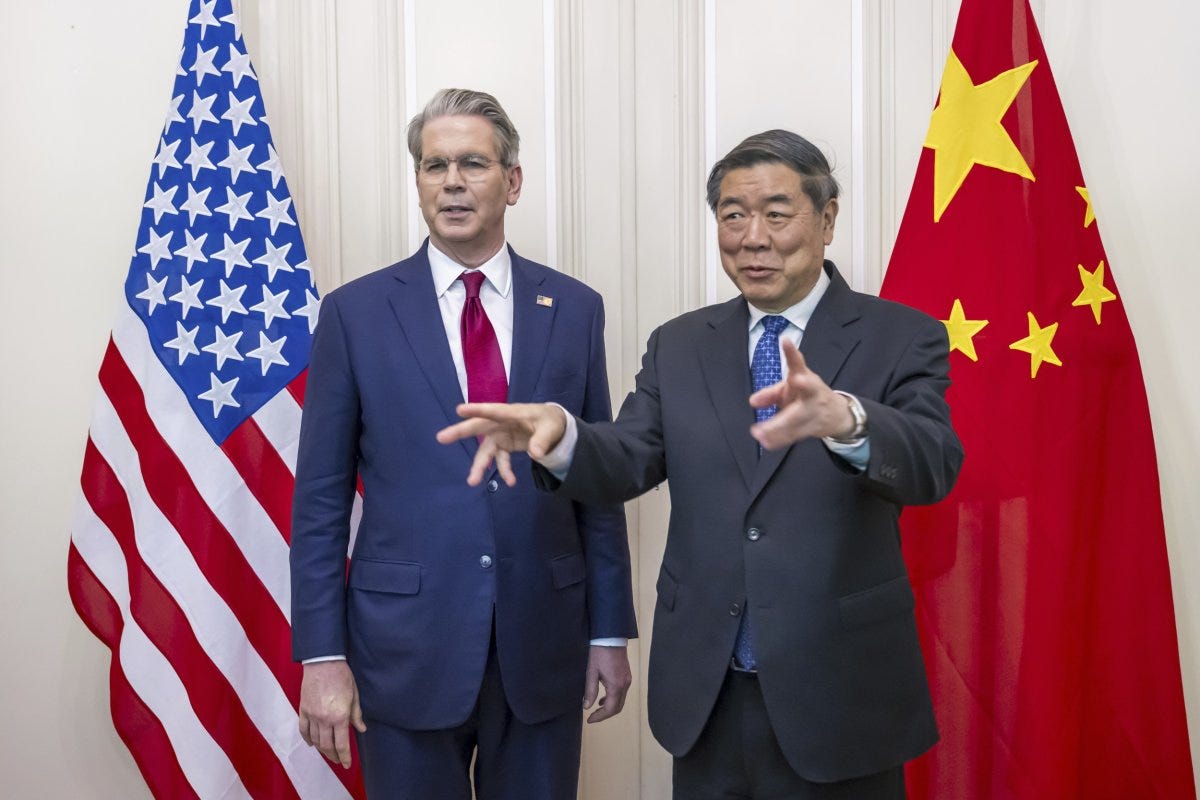EP 11. Decades of Navigating China's Evolving Business Landscape with Andrew Cainey
Description
In this episode, I had the honor to host Andrew Cainey, the founding director of the U.K. National Committee on China, a Senior Associate Fellow at the Royal United Services Institute and an expert on China's economic development and business environment. Andrew’s distinguished career spans over two decades of advising businesses and governments in China, Korea, and Japan. He has authored "Xiconomics: What China’s Dual Circulation Strategy Means for Global Business," providing deep insights into China's economic policies under Xi Jinping. The conversation delves into Andrew’s experiences in China, the evolution of the Chinese business community, and the impact of current global dynamics on foreign businesses operating in the region.
Thanks for listening! Please help us spread more fact-based view by sharing this podcast!
Content Highlights:
* Andrew Cainey's Background: Introduction to Andrew Cainey, a renowned expert on China's economic development, his career in consulting across Asia, and his role as the author of "Xiconomics: What China’s Dual Circulation Strategy Means for Global Business."
* First Encounters with China: Andrew shares his initial experience visiting China in 1981, offering insights into how his early exposure shaped his understanding and interest in China's economic landscape.
* Evolution of Chinese Business: Exploration of the changes in China's business environment over the past decades, including the rise of the private sector and the transformation of state-owned enterprises.
* Foreign Business Dynamics in China: Discussion on the shifting dynamics of foreign businesses operating in China, including challenges and strategies for success amid political and economic shifts.
* Impact of Global Geopolitics and COVID-19: Analysis of how recent global events, particularly the COVID-19 pandemic, have impacted foreign business sentiment and operations in China.
* Market Opportunities in China: Andrew emphasizes the ongoing economic opportunities in China, despite the slowdown and challenges, underscoring the importance of the Chinese market for global businesses.
* Understanding 'Xiconomics': A deep dive into Xi Jinping's economic policies and their implications for foreign businesses, as detailed in Andrew’s book "Xiconomics."
* Working with Chinese Government Officials: Insights into the complexities and strategies for effectively engaging with Chinese government officials in a business context.
* Practical Advice for Foreign Businesses: Andrew offers practical advice for foreign companies looking to enter or expand their operations in China, highlighting the need for on-the-ground understanding and adaptability.
* Cultural and Business Insights: Reflections on the pragmatism of Chinese businesses and government, and the importance of balancing local practices with global business standards.
Full transcript
[00:01:11 ] Mu: Can you share a bit about your very established career? How do you get your China related career started and some of the highlights?
[00:01:19 ] Andrew: My China involvement has been very punctuated and become more consistent over the past 10 or 15 years . I first went to China way back in 1981, when I was in the UK in the sixth form, I was 17 years old and a group of us, students, won a competition funded by a British bank to go around China. And so in, back in 81, I went around China. We went to friendship stores and we used foreign exchange certificates because we didn't have access to the local Chinese currency. There are lots of stories about a very different China, and staying in the, the Peking hotel in Beijing at the time, reuters, Telexes hanging out the news within the foreigner floor of the hotel. And that's where I read about Prime Minister Margaret Thatcher's latest reshuffle of her ministers as I'd been cut off from Western news for a couple of weeks going around China. So that was 81. And then I had a more conventional, more European based career in consulting.
I had a lot of interest in Japan as Japan grew in its economy. A common theme in my life has been my interest in different cultures and languages and all that in the economic context. And so I spent a lot of the eighties very interested in Japan. I had a career or started my career with Boston Consulting Group. As I made partner in the mid late nineties. I decided again to move out to Asia and I joined the Seoul office as BCG was building up in Korea at the time and actually arrived in Seoul just before the Asian financial crisis. Didn't actually cause it myself, but it was a very fortuitous arrival, which got me into a lot of bank restructuring work in Korea.
And through that, I re -engaged with China. So, between 81 and 99, I didn't go to China. And then early in 1999, one of the largest Chinese financial institutions was looking for some consulting help on risk management, on reorganization, all within China. And they found my Korean experience to be very relevant, maybe more relevant than something coming out of America or, or the UK.
And I had a wonderful eight months or so commuting into China working with a Chinese team, advising the the governor of this leading state financial institution in what was really a landmark case for Western consulting companies working in China. And I did a bit more and then you know, I moved back to the UK and paradoxically in the UK I got more interested in China and had a bit of time to go to China with some good Chinese friends who said, why don't you move here?
And figured out that a problem would be that I didn't speak Chinese, but I, I like languages. So I said, why don't you go and study some Chinese? So in 05, I moved with my wife to China and I studied Chinese in Beijing, ended up heading the Booz Allen consulting business in China.
And then around 10 plus years ago, my interest broadened out. Inevitably as part of success in business in China is understanding the broader context and how does China really function? How is it different? How is it the same to the countries that I knew better?
And so I got a much broader interest in China's economic development model its political economy. And so the past 10, 12 years now, I do a range of things, still advising companies but also working on helping to understand what's happening in China and looking at how governments around the world are responding to that, in both what they see as opportunities and challenges from China's increasing importance.
[00:04:44 ] Mu: That's very intriguing experience that you have. You have spent decades working on China related careers and business. What do you see the evolution of the China's business community and the way Chinese do business? What are the changes and what are the things that didn't change?
[00:05:04 ] Andrew: I started coming into China, it was 20 odd years ago, and at that stage, you had the multinationals coming in, often saying, "well, we bring leading practices and we want to do things, and we then have to navigate What, at the time, were primarily state owned enterprises of different kinds, central or local and very, very different cultures."
And I remember stories from some of the early bank cooperation partnerships and the differences there. Whereas what we've seen in China is clearly the emergence, firstly, of a very capable private sector. And secondly a number of state owned enterprises, they're also very effective and, and competitive and ambitious.
One thing which struck me is going back now is working with one of the big British banks, back in 2005, they were saying, look, we're really, really good at database marketing. We have these great capabilities in credit card segmentation. So we can bring those around the world. We can bring them to China. And. The issue at the time was actually, no, that's not where China is. Literally, the penetration of credit cards was low and growing, but also the data was simply not available. And so while the British bank was saying, we can bring our world class data and analytics capabilities to China, what the Chinese partner was saying was, actually, we'd like to set up a call center, please. How do you set up call centers? You guys have call centers. And so this difference between what The foreign company thinks is the value and what the local partner really, was different in that way. And now, of course, it may well go the other way around that actually the Chinese companies are ahead in some of the data analytics and certainly access to the scale of the data.
So we're also seeing this, 15, 20 years ago, a Western company would come in, look for a joint venture partner. They might be thinking about how could they end up buying that joint venture partner at some time. I was involved with another case even already 10 years ago. Where the real consideration was the Chinese partner saying, "no, no, we don't want a 50 -50 JV. We want to stay as the majority owner with the foreign partner, because then we can be a more truly local company from a regulatory perspective. But we also have global ambitions and we want to be able to buy the foreign company." so it's not the foreign company coming and saying, I'm going to buy out the Chinese partner. It's the potential for it to go th

















